This program provides materials to organize a high school after-school enrichment program focused on repairing electronics. Students develop technical and problem-solving skills, and learn about the extraction - production - consumption - discard economy and its implications for the environment and society. The program culminates in a community repair event.
Lesson plans and supplementary resources to organize and teach 10 one-hour sessions. Electronics are emphasized.
Go to — Restart at School Website
Age — 7th - 12th grade (13 - 18 years old)
Cost — Free
Source — The Restart Project, London, UK
“This is a hands-on enrichment programme that teaches students more about how consumer electronics are made, but also how to fix them and prolong their lifecycles. While the programme does help students gain hard skills - such as disassembly, reassembly, and manual dexterity, it will also provide a space for learning of transferable skills such as creative problem solving, teamwork and fault-finding. This programme is designed to culminate in a “Restart Party,” an open, community event where students and community volunteers share their skills, helping people fix their own broken gadgets.”
Based in London, active across the UK and EU, and affiliated with organizations around the world, The Restart Project is powerhouse in multiple repair arenas. This charitable organization operates a large network of community repair events (Restart Parties); advocates for Right to Repair policies; works with schools and local charitable organizations; conducts data collection and research; hosts a repair podcast; hosts biannual international repair convenings; and more. The Restart Project is a vital presence in the global repair movement.
See the Restart resources to do repair on the Practical and Technical Resources page.
Your Input Is Really Valuable!
The objective guiding the development of this catalog is to offer you what you need to do what you want to do.
Is this resource helpful? How did you use it? What suggestions do you have for improving this particular resource and/or the overall catalog? What do you need that’s not here? Please leave a comment below.
Thank you for taking a few moments to contribute to creating a valuable resource!

